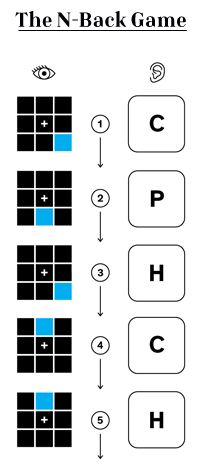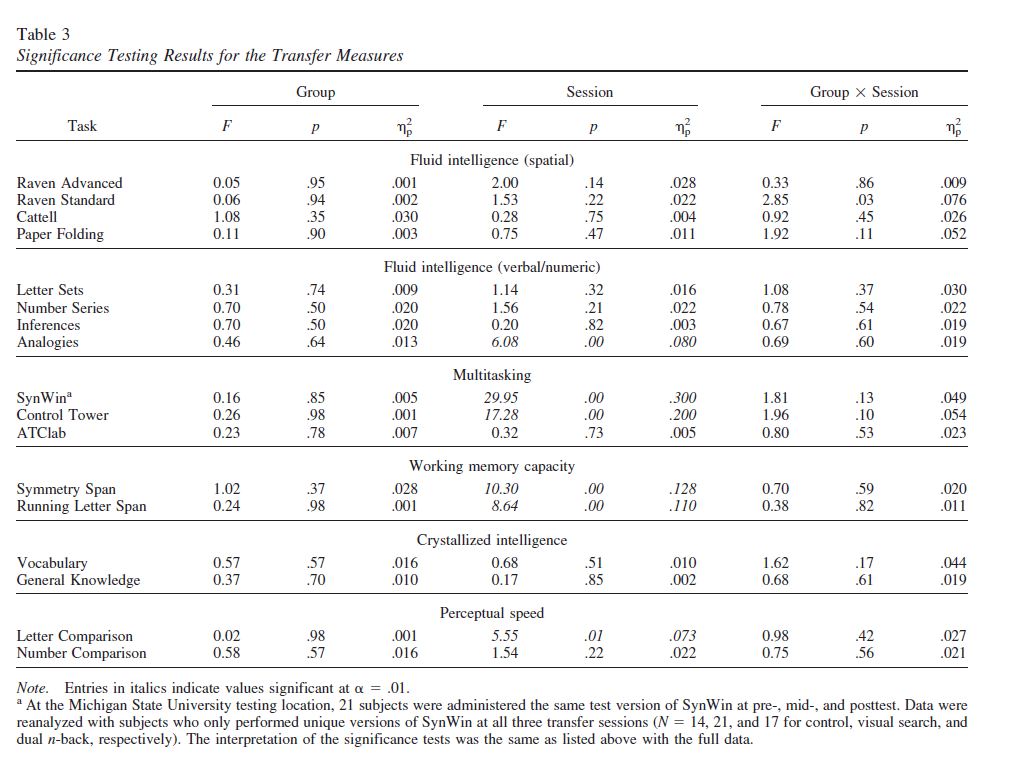
The study, by Thomas Redick and seven other researchers, offers a negative result--training doesn't help--which often is not considered news (link is 404 as I write this--I hope it will be back up soon). There are lots of ways of screwing up a study, most of which would lead to null results. But this null result ended up published in the excellent Journal of Experimental Psychology: General because the study is so well-designed.
Researchers gave the training plenty of opportunity to have an impact--subjects underwent 20 sessions. There were enough subjects (N=75) to afford decent statistical power to detect an effect, were one present. Researchers used a placebo control group (visual search) as well as a no-contact control group. They used multiple measures of fluid intelligence, crystallized intelligence, multi-tasking, and perceptual speed. These measures were administered before, during, and after training.
The results: people got better at what they practiced--either n-back or visual search--but there was no transfer to any other task, as shown in the Table (click for larger version).
These results make me skeptical of commercial programs offering to improve general cognitive processing.
Redick, T. S., Shipstead, Z., Harrison, T. L., Hicks, K. L., Fried, D. E., Hambrick, D. Z., Kane, M. J., & Engle, R. W. (in press). No evidence of intelligence improvement after working memory training: A randomized, placebo-controlled study. Journal of Experimental Psychology: General.

 RSS Feed
RSS Feed